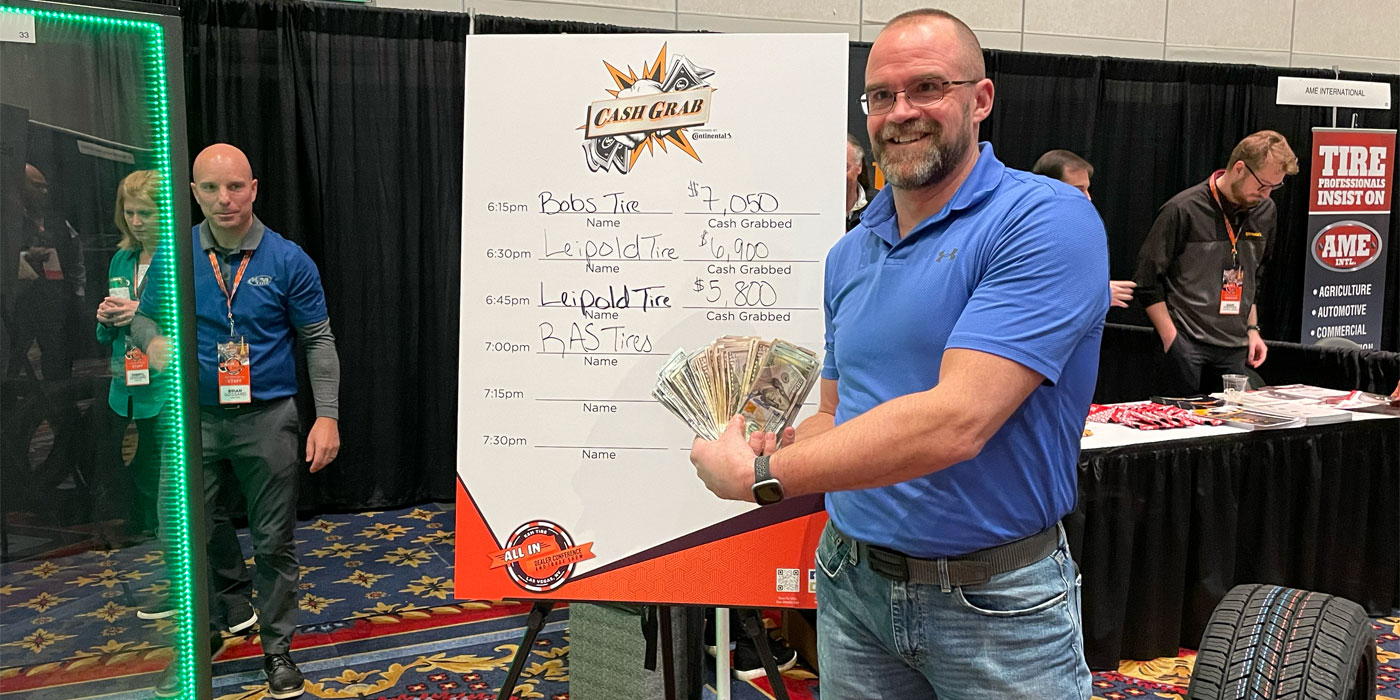 The tedious number crunching involved with keeping a tire dealership on track is something most dealers don’t mind passing off to an accountant – in fact, the majority are glad to have their time freed up to manage other areas of the business.
The tedious number crunching involved with keeping a tire dealership on track is something most dealers don’t mind passing off to an accountant – in fact, the majority are glad to have their time freed up to manage other areas of the business.
But if you assume the only times you need an accountant are for tax preparation and year-end financial statements, think again. In recent years, a new breed of accountant has proven popular – the forensic accountant. Part financial expert and part detective, forensic accountants investigate trends in your business in order to uncover potential problems, including overbilling, inaccurate rent or lease contracts and fraud, among others.
While forensic accountants have been around for quite a while, they only recently have become more formalized. The American Institute of Certified Public Accountants issues a Certified in Financial Forensics credential to CPAs who meet specific requirements. Only 1% of CPAs have qualified for the designation of CFF, according to Richard Lipton, CPA, CFF.
As president and founder of Richard L. Lipton CPA & Associates LLC, located in Florham Park, N.J., Lipton counts many tire dealers among his clients. With a background in tire and automotive service, Lipton has been a stockholder and manager of family-owned Sam’s Tire Co. for 10 years.
“With traditional accounting, a dealer meets with an accountant and gives them the business’ books and records,” Lipton says. “The accountant puts a financial statement and tax return together based upon what is provided to them – and that’s it. If the business owner does not give something to the accountant, it’s not recorded in the tax or financial statements.”
Forensic accounting, on the other hand, is investigative. The accountant takes a detailed look at the books, in addition to interviewing employees, suppliers and landlords, if necessary.
“We don’t use the standard audit program,” Lipton says. “In our firm, we tailor each forensic audit to that particular business. And it still gets adjusted when we’re out in the field working on it.”
Uncovering Clues
The first step a forensic accountant takes when investigating a business is to benchmark the numbers of financial statements in order to look for discrepancies.
“We look for any numbers that stand out from the others,” Lipton says. “That helps us know which areas to target.”
He also starts by talking to the dealer to find out whether there are any suspicions, in addition to getting an idea of how the business is run. This includes finding out which employees serve which roles – from bookkeeper, shop foreman and warehouse manager to service truck driver – and how much the business owner trusts them. “Does the owner know exactly what type of work each person is doing?” Lipton asks. “Would they ever question what that person does?”
Often, fraud occurs in the least likely place a dealer would think to look: with a trusted employee who has worked at the business for many years, according to Lipton.
“When dealers trust someone completely and give them full control, that’s where fraud can occur. If the business owner hadn’t given them the leeway and that flexibility, it couldn’t have occurred.”
One sign Lipton’s firm looks for when tracking down fraud is employees who work overly hard to maintain control of their particular job. “Often, they have built a sense of trust with the owner and won’t let anyone else touch their department,” he says.
On average, more than 20% of corporate profits are lost due to fraud each year, according to Lipton. That number is even higher among small companies, where there is usually more trust and owners often turn a blind eye, thinking it will never happen to them, he says.
“There’s more fraud than ever in today’s economy,” Lipton says. “Three things must be present in order for someone to commit fraud: need, greed and entitlement. Nowadays people need the money because their hours or salary have been cut. Greed is present because they want the extra cash now more than ever. And if the money is there for the taking, without any controls, they think they’re entitled to take it.”
Some common warning signs of fraud include rising expenses, declining revenue and abnormally high inventory shrinkage. Other, more specific indicators include missing purchase orders, dramatic increases in labor costs or overtime not justified by a sales increase, increased payments to a vendor without reason, consistent cash shortages, an excessive number of voided sales transactions and excessive inventory write-offs.
In tandem with fraud being on the upswing, many companies that are forced to cut expenses in a tough economy are choosing accounting as an area in which to decrease costs. “People are using the cheapest accountant out there because they think they can’t afford a high-level consultant. But a lot of businesses can’t afford to not use one,” Lipton says.
“The owner needs to invest in his or her business, not just bury their head in the sand,” he continues. “They need outside help; they can’t just ask their bookkeeper these questions, since their bookkeeper could be the problem.”
Based on the financial numbers and the responses – words, body language and facial expressions – of employees during the interviews, forensic accountants uncover fraud. In addition, firms like Lipton’s work with the business owner to put controls in place as a deterrent for future incidents. These deterrents are tailored for each client and can include things like division of duties, monthly bank reconciliations, the owner reviewing the credits or a periodic review by an outside forensic accountant.
Some examples of fraud Lipton’s firm has uncovered include a bookkeeper who takes a customer’s check and diverts it to his or her own bank account; and a service truck driver who goes out on a service call, changes the tire and bills the customer for it. But on the way back to the shop, the employee sees another car stuck on the road, provides service using the company’s tools and equipment, accepts a cash payment and keeps it for themselves.
Often, forensic accounting can uncover other problem areas, such as overbilling by a supplier or inaccurate rent or lease contracts. If a tire dealer trusts their landlord, he or she might not realize that individual is passing along costs that are unjustified – or higher than they should be – in each month’s rent.
“We review the landlord’s books to determine if the charges passed along to tenants are legitimate,” Lipton says.
Overcoming Doubts
Despite the benefits and security that hiring a forensic accountant can bring, many business owners may question the need to go through the process.
In today’s economy, dealers may not want the extra cost, although according to Lipton, “accounting is not the area to cut expenses.
“When companies cut expenses, they’re doing several things: eliminating some controls, reducing workforce and hurting employee morale – all of which are incentives for fraud,” he says. “Say a dealer looks at his cash flow and knows the shop should be doing better. He can’t blame everything on the economy. People need to open their eyes to the possibility of fraud.”
Besides the expense, some dealers don’t want to risk questioning or intimidating their employees, as well as damaging relationships with suppliers or landlords.
“Dealers don’t want people to think they don’t trust them,” he says. “But if someone’s stealing from you, it’s more important to let them know you’re onto them than it is to keep a friendly relationship.”
It will also keep employees honest if they know that hiring a forensic accountant is a possibility, he notes. And, looking on the bright side, even if there is no fraud or other problems found in a business, that dealer has the peace of mind of knowing his business is in good hands.
“Typically by the time a dealer calls us, they’re already suspicious of something,” Lipton says. “And where there’s smoke, there’s fire. Usually if someone suspects something, there’s a good reason.”
Lipton can be reached via e-mail or by calling 973-520-8123.













